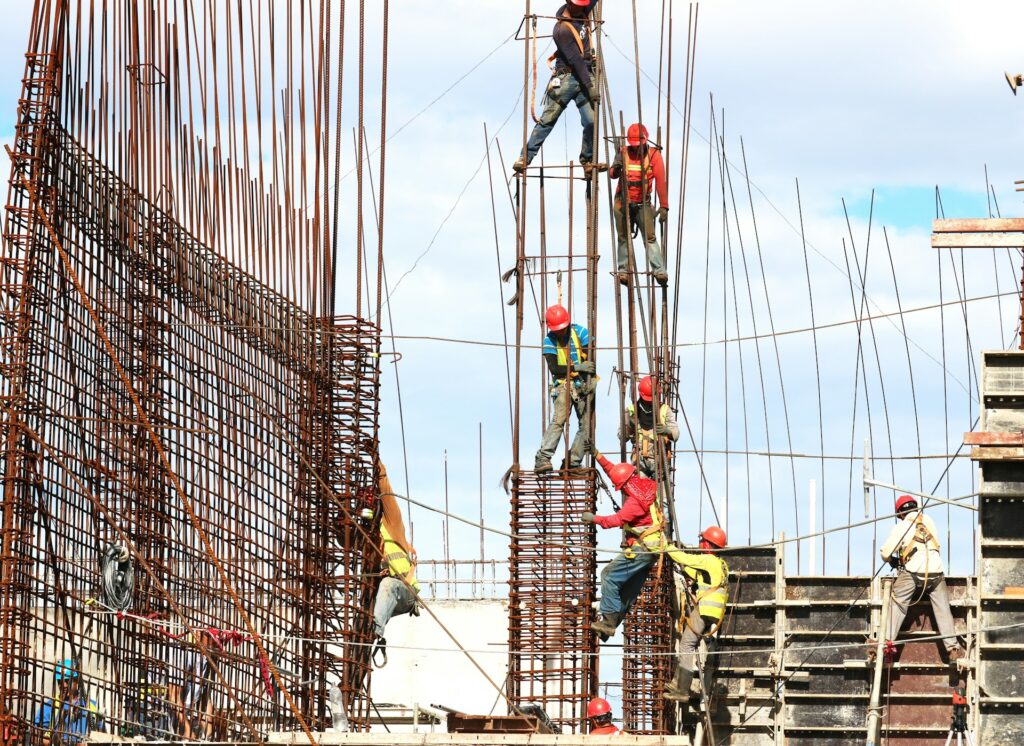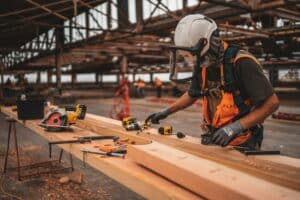Quality control is crucial in construction to ensure that projects are executed safely, efficiently, and to the highest standards. In Thailand, maintaining quality on construction sites involves several key practices, from setting clear standards to regular inspections and effective communication. These measures help prevent errors, reduce costs, and ensure that the final product meets all regulatory and client expectations.
The foundation of quality control starts with establishing comprehensive standards specific to each project. These benchmarks guide every aspect of the construction process, ensuring that materials and workmanship meet the required specifications. Regulatory compliance also plays a vital role, as adhering to national and local building codes is essential for the safety and legality of any construction project.
Implementing robust inspection procedures is another critical aspect of quality control. Regular site inspections help identify and rectify issues early, preventing them from becoming costly problems later on. Utilising technology such as drones and sensors can enhance the accuracy and efficiency of these inspections, providing real-time data and insights. This proactive approach ensures that all phases of the construction adhere to the predefined quality standards.
Moreover, having a skilled and well-equipped workforce is essential for maintaining high quality. Continuous training programmes and certifications ensure that workers are up-to-date with the latest construction techniques and safety protocols. Providing the right tools and equipment further supports the workforce, enabling them to perform their tasks effectively and safely.
Finally, effective communication and meticulous documentation are indispensable for quality control. Clear communication channels ensure that everyone involved in the project is on the same page, while thorough record-keeping helps track progress, identify issues, and make informed decisions. Utilising project management tools can streamline documentation processes, making information accessible and manageable.
By focusing on these key areas, construction projects in Thailand can achieve exceptional quality and deliver results that meet or exceed expectations.
Establishing Clear Quality Standards
Setting quality standards is fundamental in construction projects. These standards define the criteria for materials, workmanship, and processes to ensure that everything meets the required quality levels. Clear quality standards help avoid confusion and provide a guideline for workers and supervisors to follow. This uniformity is crucial for maintaining consistency across different aspects of the project, from initial design to the final touches.
Key quality benchmarks in construction include strength and durability of materials, accuracy in measurement and alignment, and adherence to design specifications. For instance, using high-grade concrete and steel ensures the structural integrity of the building. Regular testing and inspections of these materials are necessary to confirm they meet the specified standards. Additionally, maintaining precise measurements during construction helps avoid structural issues and ensures the project aligns with the architectural plans.
Regulatory compliance in Thailand is another critical aspect of quality control. Construction projects must adhere to national and local building codes, which govern everything from structural design to health and safety regulations. Compliance ensures that the building is safe for occupants and meets legal standards. Regularly updating oneself with these regulations is essential, as non-compliance can result in legal penalties and project delays.
Implementing Robust Inspection Procedures
Regular site inspections are vital for maintaining quality control. These inspections involve systematically checking each aspect of the construction to ensure it complies with the established standards. Regular inspections help identify potential issues early, allowing for timely corrections. This proactive approach reduces the likelihood of significant problems arising later in the project, saving time and resources.
The role of third-party inspectors is invaluable in maintaining objectivity. These professionals bring an unbiased perspective and expertise, identifying issues that may be overlooked by in-house teams. Third-party inspectors can conduct thorough assessments, providing detailed reports and recommendations. Their involvement enhances credibility and assures stakeholders that the project meets the highest quality standards.
Using technology for inspections, such as drones and sensors, revolutionises the inspection process. Drones can quickly survey large areas, capturing high-resolution images and videos for detailed analysis. They can access hard-to-reach areas, ensuring comprehensive inspections. Sensors embedded in structures can monitor various parameters like temperature, humidity, and structural stress in real-time. This data helps in making informed decisions and ensures continuous quality monitoring throughout the construction process.
Combining these inspection strategies ensures that all aspects of the construction project are meticulously checked and maintained, leading to a higher overall quality and compliance with standards.
Training and Equipping the Workforce
Having a skilled workforce is essential for ensuring quality in construction projects. Skilled labour brings expertise and precision to the construction process. Each worker must be adept at their specific tasks, whether it’s masonry, carpentry, or electrical work. Specialised knowledge helps in executing tasks efficiently and with greater accuracy, ultimately improving the quality of the build.
Training programmes and certifications play a vital role in maintaining a skilled workforce. Regular training ensures that workers are updated on the latest construction techniques and safety protocols. Certifications validate their skills and knowledge. These programmes can cover various aspects of construction, including the use of new materials, advanced construction techniques, and safety standards. A well-trained workforce is more capable of identifying and mitigating potential quality issues before they become significant problems.
Providing the right tools and equipment is equally important. Quality tools enhance the precision and efficiency of the work. Modern equipment such as laser levels, power tools, and safety gear help workers perform their tasks more effectively. Ensuring that the workforce is well-equipped minimises the risk of errors and accidents, further contributing to the overall quality and safety of the construction project.
Effective Communication and Documentation
Clear communication channels are crucial for the success of any construction project. Effective communication ensures that everyone involved is on the same page. This includes architects, engineers, contractors, and workers. Regular meetings and updates help share important information, resolve issues quickly, and keep the project on track. Clear instructions and feedback also minimise misunderstandings and errors, leading to a smoother construction process.
The importance of record-keeping cannot be overstated. Detailed documentation of every phase of the project helps track progress and ensures accountability. This includes records of materials used, work completed, inspections conducted, and any issues encountered. Good record-keeping practices provide a clear history of the project, which can be valuable for future reference or in case of disputes.
Utilising project management tools for documentation enhances efficiency. Digital tools like project management software can store all necessary documents in one place, making it easy to access and update information. Features like task tracking, file sharing, and real-time updates streamline the documentation process. These tools provide a comprehensive overview of the project, facilitating better decision-making and ensuring that no detail is overlooked.
Final Thoughts
Ensuring quality control in Thailand’s construction sites involves a multifaceted approach that includes setting clear standards, rigorous inspections, skilled labour, and effective communication. By focusing on these key areas, we can achieve high-quality construction projects that meet safety standards and client expectations. Technologies like drones and digital project management tools further enhance our ability to maintain quality and efficiency throughout the construction process.
As we continue to embrace advancements in construction technology and training, our capability to deliver exceptional results will only improve. This commitment to quality ensures that every project we undertake is completed to the highest standard, providing long-term value and satisfaction.
At CJ Samui Builders, we prioritise quality in every aspect of our work. Contact us today to learn how we can help you achieve excellence in your construction projects.




